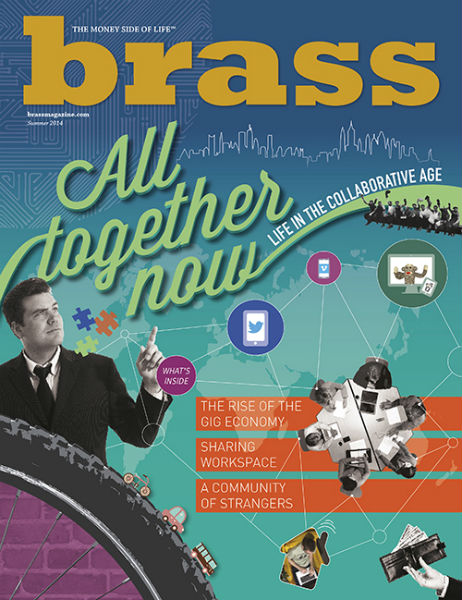Sharing is the New Normal: Why we’re looking into the collaborative economy

by. Matt Neznanski
Even five years ago, opening up your home to strangers would have seemed sketchy, but the 4 million users in 192 countries on Airbnb have made the practice commonplace. Cashing in on the unused assets you have sitting around is becoming big business. Whether you call it an “asset-light lifestyle,” “peer-to-peer sharing,” or “the sharing economy,” it was estimated to add $3.5 billion to people’s wallets in 2013.
In January, the U.S. House of Representative’s Committee on Small Business discussed the impact and potential of the sharing economy. At the meeting, Philip Auerswald, associate professor of public policy at George Mason University, said the transportation, hospitality, and consumer goods markets are just low-hanging fruit. The next wave of peer-to-peer sharing, he said, could involve heavily regulated industries, like healthcare, energy, and education.
Auerswald even suggested that with the loss of so many jobs during the recession, peer-to-peer sharing could allow hundreds of thousands of people to make a living by sharing and trading in the stuff we’ve got sitting around.
In the summer issue, we approached collaboration from three different perspectives:
continue reading »



